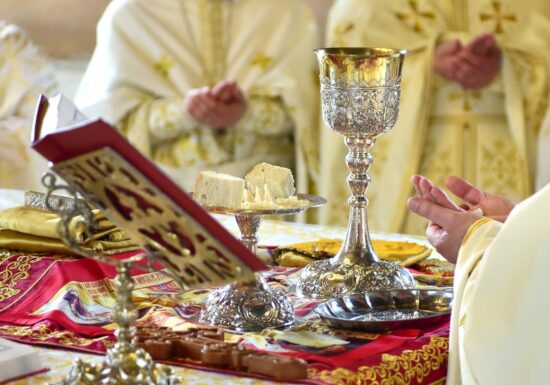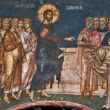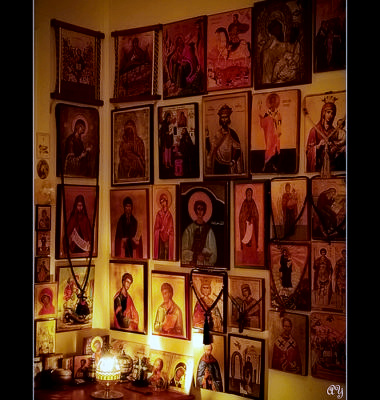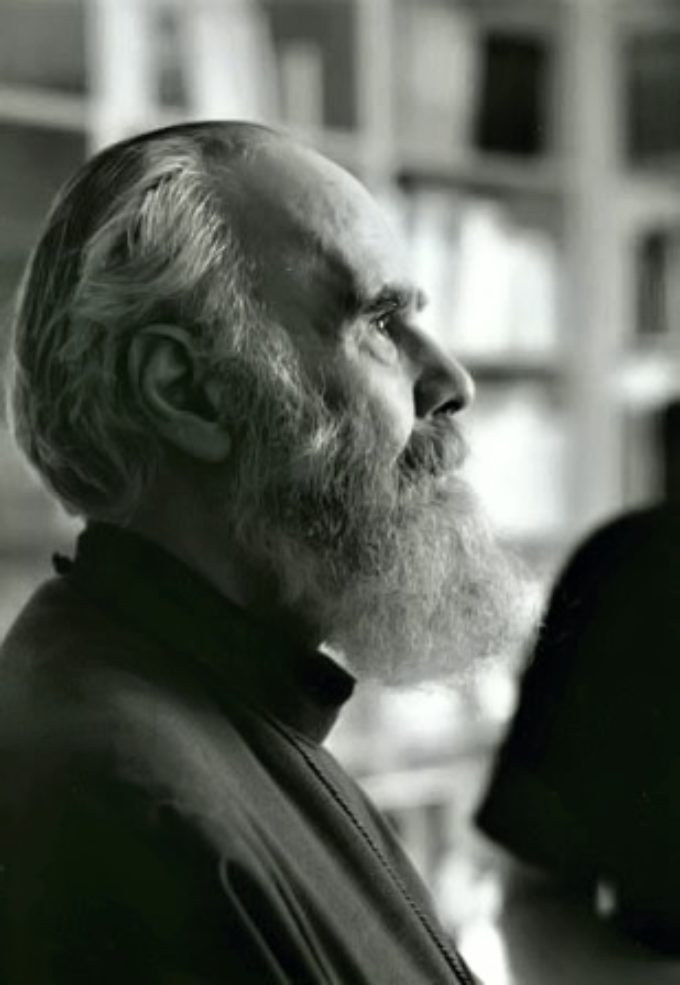Jesus in the house of a prominent Pharisee
“One Sabbath day Jesus went to eat dinner in the home of a leader of the Pharisees, and the people were watching him closely. Then He also said to him who invited Him, “When you give a dinner or a supper, do not ask your friends, your brothers, your relatives, nor rich neighbors, lest they also invite you back, and you be repaid. But when you give a feast, invite the poor, the maimed, the lame, the blind. And you will be blessed, because they cannot repay you; for you shall be repaid at the resurrection of the just. Now when one of those who sat at the table with Him heard these things, he said to Him, “Blessed is he who shall eat bread in the kingdom of God!”
“The Hunger of the Poor”
Saint Basil the Great, Homilies and Sermons, Homily VIII, VII, in “Fathers and Church Writers” (2009), vol. 1, pp. 151-153.
Hunger, the disease of the starving, is a torment filled with sorrow. Hunger is the head of human misfortunes; death by famine is the most cruel death. For in all other forms of mortal danger, the end comes quickly: the sharpness of the sword swiftly terminates life; the fury of fire extinguishes it immediately; the teeth of wild beasts tear apart the vital organs, not allowing the suffering to prolong. However, hunger is a prolonged torment, a lasting suffering, an ailment deeply rooted within us that does not vanish, a death perpetually present and perpetually postponed. Hunger dries up the natural moisture of the body, reduces its weight, and gradually diminishes its strength. The flesh wraps around the bones like a spider’s web; the face loses its color; the blush in the cheeks disappears as the blood melts away; the whiteness of the face fades as weakness turns it black; the body turns violet, as suffering transforms it into a dismal mixture of yellow and black; the knees tremble and move with difficulty; the voice becomes thin and feeble; the eyes, weakened in their sockets, vainly stare like walnut kernels covered in their shells; the belly, empty and shriveled, shapeless and without volume, adheres to the bones of the back, with the intestines having lost their natural elasticity. How many punishments does one deserve who overlooks such a body? Is there a greater cruelty than this? Is it not worthy to be counted among wild animals and viewed as cursed and condemned like a murderer, the one who can cure such a great evil but willingly delays helping due to stinginess? (…) Even our God often overlooks other sufferings, but He is filled with mercy for the hungry. I have compassion on the people (Matthew 15:32), said Christ. Therefore, on the last judgment day, when the Lord calls the righteous, the first place belongs to the generous one; the one who fed the hungry is at the forefront of those honored by God; the one who gave bread is called before all; the kind and open-hearted one is sent ahead of the others into eternal life (Matthew 25:34-36), while the one who did not share his wealth with anyone and the stingy one is cast into the fire before all sinners (Matthew 25:41-43).
Source: ziarullumina.ro






